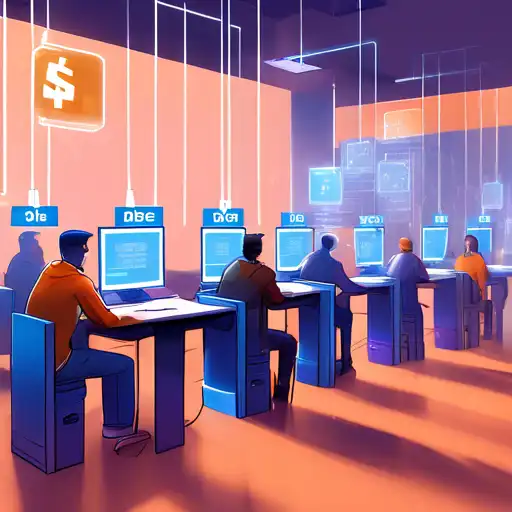Introduction to Blockchain in Voting
In the digital age, the integrity of voting systems is more important than ever. Blockchain technology, known for its security and transparency, is emerging as a revolutionary tool in securing electoral processes. This article explores the pivotal role of blockchain in creating tamper-proof voting systems.
The Need for Secure Voting Systems
Traditional voting systems are fraught with vulnerabilities, from ballot tampering to hacking electronic voting machines. The need for a secure, transparent, and efficient voting mechanism has never been more critical. Blockchain technology offers a promising solution to these challenges.
How Blockchain Enhances Voting Security
Blockchain's decentralized nature ensures that no single entity can control or manipulate the voting data. Each vote is recorded as a transaction, encrypted, and linked to the previous one, creating an immutable ledger. This makes altering any vote virtually impossible without detection.
Key Benefits of Blockchain in Voting
- Transparency: Every transaction is visible to all participants, ensuring the integrity of the electoral process.
- Security: Advanced cryptographic techniques protect against fraud and unauthorized access.
- Accessibility: Voters can cast their ballots from anywhere, increasing participation.
- Efficiency: Reduces the time and cost associated with traditional voting methods.
Real-world Applications
Several countries and organizations have begun experimenting with blockchain-based voting systems. For instance, Estonia has implemented blockchain technology to secure its digital voting platform, setting a precedent for others to follow.
Challenges and Considerations
Despite its potential, the adoption of blockchain in voting faces hurdles, including technological literacy among voters and concerns over digital divide. Addressing these challenges is crucial for the widespread acceptance of blockchain voting systems.
Conclusion
Blockchain technology holds the key to transforming voting systems into more secure, transparent, and efficient processes. As the technology matures, it could play a central role in safeguarding democracy in the digital era.
For more insights into how technology is shaping the future, explore our technology trends section.
